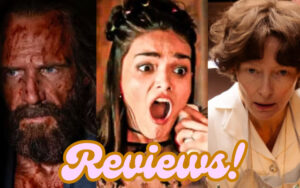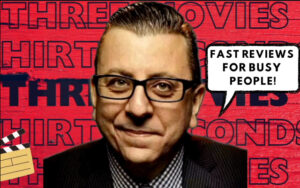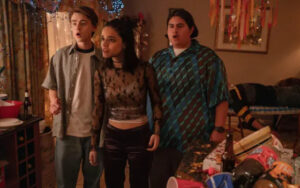CTV ATLANTIC: RICHARD AND TODD BATTIS ON NEW MOVIES IN THEATRES!
 I join CTV Atlantic anchor Todd Battis to talk about the almost epic “The Return,” the apocalyptic musical “The End” and the nostalgic disaster flick “Y2K.”
I join CTV Atlantic anchor Todd Battis to talk about the almost epic “The Return,” the apocalyptic musical “The End” and the nostalgic disaster flick “Y2K.”
Watch the whole thing HERE!
 I join CTV Atlantic anchor Todd Battis to talk about the almost epic “The Return,” the apocalyptic musical “The End” and the nostalgic disaster flick “Y2K.”
I join CTV Atlantic anchor Todd Battis to talk about the almost epic “The Return,” the apocalyptic musical “The End” and the nostalgic disaster flick “Y2K.”
Watch the whole thing HERE!
 I sit in on the CFRA Ottawa morning show with guest host Andrew Pinsent to talk the new movies coming to theatres including the almost epic “The Return,” the apocalyptic musical “The End” and the nostalgic disaster flick “Y2K.”
I sit in on the CFRA Ottawa morning show with guest host Andrew Pinsent to talk the new movies coming to theatres including the almost epic “The Return,” the apocalyptic musical “The End” and the nostalgic disaster flick “Y2K.”
Listen to the whole thing HERE!
 Fast reviews for busy people! Watch as I review three movies in less time than it takes to do a high five! Have a look as I race against the clock to tell you about almost epic “The Return,” the apocalyptic musical “The End” and the nostalgic disaster flick “Y2K.”
Fast reviews for busy people! Watch as I review three movies in less time than it takes to do a high five! Have a look as I race against the clock to tell you about almost epic “The Return,” the apocalyptic musical “The End” and the nostalgic disaster flick “Y2K.”
Watch the whole thing HERE!
 SYNOPSIS: “Y2K,” a new disaster comedy now playing in theatres, imagines what could have happened if predictions of a technological armageddon came true as the world greeted the new millennium on New Year’s Eve 1999. “It’s goodbye human race,” says Laura (Rachel Zegler).
SYNOPSIS: “Y2K,” a new disaster comedy now playing in theatres, imagines what could have happened if predictions of a technological armageddon came true as the world greeted the new millennium on New Year’s Eve 1999. “It’s goodbye human race,” says Laura (Rachel Zegler).
CAST: Jaeden Martell, Julian Dennison, Rachel Zegler, Fred Durst, and Alicia Silverstone. Directed by Kyle Mooney.
REVIEW: Part teen coming-of-age comedy, part apocalyptic disaster flick and part affectionate 1990s time capsule, “Y2K” takes a one joke premise and stretches it as thin as a sheet of foolscap to reflect on our relationship with technology.
In this world, the machines are tired of being conduits for hate and pornography and attempt a coup. “Cell phones. E-mail,” a snarky computer avatar tells computer hacker Laura. “You’re already our slaves.”
Director Kyle Mooney, who also co-wrote the script and co-stars as stoner video store clerk Garrett, hit most of the right notes in creating the world of “Y2K.” As a teen buddy comedy, he gets it right with fun period details and the casting of Jaeden Martell and Julian Dennison as nerdy best friends, the lovelorn Eli and the boisterous Danny. They are classic teen movie outsiders who step up when tested, and when they are on screen together, they’re prove to be a winning combo.
It’s when the digital revolution really gets underway that “Y2K” begins to wobble. The idea of the world’s computers bonding together as towering, killer robots, cobbled together from all manner of electronics, is cool and their first attack (which includes a homicidal Tamagotchi), just minutes into the new year, is chaotic and fun. The practical effects and frantic pacing feel like a throwback to 90s teen films, and for a time, the jokey idea has some spark.
As the teen story of survival continues into the last forty-five minutes, however, the characters aren’t up to the task of keeping us engaged with the material and “Y2K” runs out of juice.
“I Saw the TV Glow,” a new existential drama starring Justice Smith, and now playing in theatres, is a coming-of-age story about someone who never quite comes-of-age.
When we first meet Owen (Ian Foreman), he’s an awkward, suburban seventh grader drawn to Maddy (Brigette Lundy-Paine), a ninth grader obsessed with a young adult TV show called “The Pink Opaque.” He’s interested in the series, an “X-Files” for teens with a villain called Mr. Melancholy, but it’s on after his bedtime.
The pair share a love of the show—he clandestinely sleeps over at her place to watch the show on the weekends—and troubled home lives.
In “The Pink Opaque” they find an escape.
Jump forward two years. Owen, now played by Smith, still can’t stay up late enough to watch the show, so he voraciously consumes it on the VHS tapes Maddy makes for him.
On the eve of the show’s cancellation, Maddy disappears, leaving Owen at the mercy of his cruel stepfather Frank (Fred Durst). Years later, she re-enters his life, with a wild tale of where she has been, as his grip on reality slowly slips away.
“I Saw the TV Glow” owes a debt to the surreal stylings of David Lynch. In their telling of the story director Jane Schoenbrun embraces Lynchian themes of appearance vs. reality, surrealism and often impenetrable storytelling. It can make for a confounding experience, as the exploration of pop culture’s effect on identity and individuality reveals itself in increasingly inscrutable ways.
“I Saw the TV Glow” is audacious in its execution, introspective in its narrative and interesting in its aesthetic, but it’s also a bit of a schlep, more ambitious than actually entertaining. It is not a feel-good movie, and has no aspirations in that direction, but as the storytelling becomes opaquer, the film loses its way, revelling in Owen’s awkwardness and mundanity rather than what makes him interesting. The result is a movie that confuses impenetrability with depth.